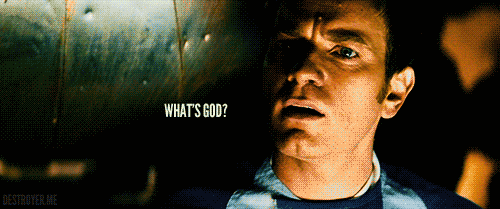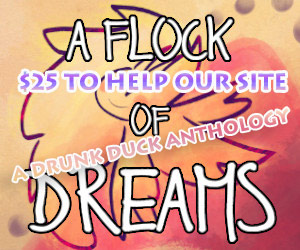
It may just be my impression, but usually when a story is set in a dystopian setting, the dystopia is played straight. However, when the characters encounter or start off in a utopian setting, they almost always will end up realizing that the utopia is actually a mirage, and in reality they live in- you guessed it- yet another dystopian reality (often the utopia is the curtain behind which an especially callus totalitarian, ethically bankrupt regime is hiding, or something even more sinister like an organ farm).
Even in the Matrix, this trope persists, when Mr. Smith tells Morpheus that the machines tried to give the plugged in humans a utopia, but their brain couldn't believe it and they kept waking up or making the grid fail or some such thing.
And while I absolutely agree that when something appears too good to be true, there is usually a catch or there's fraud going on or you should just run, I don't think that it's fair not to at least give a real utopian setting a shot.
I suppose the closest thing to it would be Star Trek's Federation: a moneyless society where racism is more or less extinct and races across the galaxy come together to form a coalition of peace and prosperity. Why does that one work where so many others fail or have to follow the ‘too good to be true’ trope?
I think the answer lies in how human nature (and by that I mean the various personalities reflected across races/aliens) is factored in that utopia. It's not a setting where everyone sings and floats in a permanent state of nirvana. It's a place where struggles still happen, and there are threats beyond (and within) its borders that need to be handled. There are challenges and dilemmas and the entire range of flaws and hurdles that make it feel grounded enough to suspend disbelief. The utopia isn't in the character interactions. It's in the baseline from which the characters take reference and approach the cosmos, so to speak.
I'd like to read/see more of these utopias attempted in narrative works. Especially in webcomics!
…the machines should have watched Star Trek.
Don't forget! The #quackchat has moved to BlueSky! Join us on Sunday evening for our Quackchat at 5:30PM(EST)!
You can also advertise on DrunkDuck for just $2 in whichever ad spot you like! The money goes straight into running the site. Want to know more? Click this link here! Or, if you want to help us keep the lights on you can sponsor us on Patreon. Every bit helps us!
Special thanks to our patrons!!




Justnopoint - Banes - RMccool - Abt_Nihil - Gunwallace - PaulEberhardt - Emma_Clare - FunctionCreep - SinJinsoku - Smkinoshita - jerrie - Chickfighter - Andreas_Helixfinger - Tantz_Aerine - Genejoke - Davey Do - Gullas - Roma - NanoCritters - Teh Andeh - Peipei - Digital_Genesis - Hushicho - Palouka - cheeko - Paneltastic - L.C.Stein - dpat57 - Bravo1102 - The Jagged - LoliGen - OrcGirl - Miss Judged - Fallopiancrusader - arborcides - ChipperChartreuse - Mogtrost - InkyMoondrop - Jgib99 - Hirokari - Orgivemedeath Ind - Mks Monsters - GregJ - HawkandFloAdventures - Soushiyo - JohnCelestri- Tottycomics - Casscade - Salexander - Willed - Sketchydrawer - Niccea - DanG

On Utopias
Tantz_Aerine at 12:00AM, April 26, 2025
5 likes!


©2011 WOWIO, Inc. All Rights Reserved Mastodon





marcorossi at 5:55PM, April 26, 2025
In general, good stories seem to require suffering, conflict or similar, so if really a story depicted an utopic world where everione is happy it would be quite boring; otoh for example the fake middle ages setting of many fantasy stories is quite utopical relative to real historical settings.
KAM at 12:32PM, April 26, 2025
As for Star Trek being a Utopia, I'm not sure that was the intent. I think when the series was created it was 'the modern world, but better'. You can see plenty of flaws in those early eps, especially how racist some people were against Spock. The whole Utopia idea seemed to come from the movie/NextGen era when Roddenberry's ideas had significantly changed from what he was thinking in the 1960s.
KAM at 12:27PM, April 26, 2025
The original fictional Utopia was really just one guy's idea of a perfect world, not multiple people's idea, which is probably impossible as everyone has a different idea of what would make them happy.
Banes at 8:16AM, April 26, 2025
I'd like to see a little more of that, too. Well said about a Utopia still having challenges and issues to deal with, from without and within. I've often thought about the future "best version" of human society, and I imagine there would still be problems. We would just have more mature ways to handle them, both personally and institutionally. Hey, here's hopin'! Someday!
dragonsong12 at 7:24AM, April 26, 2025
Yeah, I guess a lot of the problem boils down to: what is a "utopia"? Because paradise to me probably looks very different to paradise to you. There's no real way to address every different person's varying wants and needs. Someone will necessarily be dissatisfied. And that will breed resentment and then conflict. It's just really hard to avoid. (See, the "rat utopia" experiment that inspired the Secret of NIMH)
usedbooks at 4:00AM, April 26, 2025
Also, I think it's a matter of "stakes." Most sci-fi and fantasy go for the ENORMOUS stakes angle. We aren't just watching/reading interpersonal struggles. It isn't a matter of the saga of one family or even a town. The entire universe has to be at stake or the very fabric of reality. For stakes that big, the setting itself has to be a character. Not all stories have to be world-enders, though. I like when normal things happen in weird worlds. Check out the animated movie Spellbound, btw. It's a cute little fantasy setting. Basically utopian.
usedbooks at 3:53AM, April 26, 2025
One of my favorite future settings was Fifth Element. It wasn't exactly utopian. It was a technologically advanced setting, but the tech wasn't ethically questionable or corrupted or sentient. It just did what tech is supposed to do. Like The Jetsons but with a 90s future instead of a 50s future. XD The setting was also not driving the plot. That's the trouble with sci-fi (or sometimes fantasy) worlds. The world becomes the plot rather than the setting. And that can be okay, but that's why there are so many dystopias. The setting itself adds conflict. Like you said, it doesn't have to. If a setting is just a setting, it doesn't have to be a conflict itself. The flaw in our thinking is that a world of good and perfect technology can prevent or solve all our problems, and if not, then it must be the source of problems. In reality, tech just sort of changes our routines. We have to solve and create our own problems.